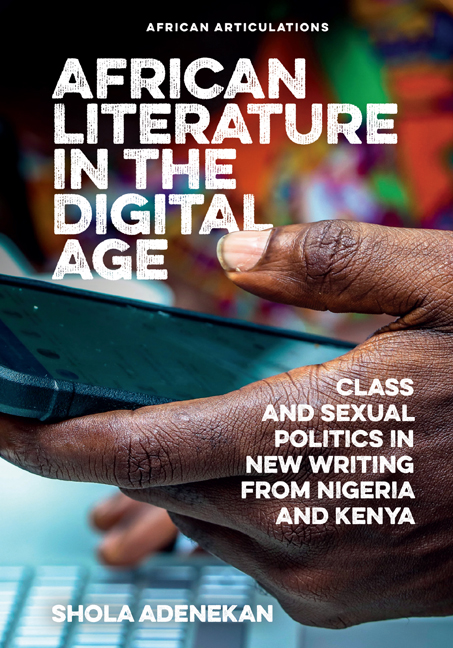 African Literature in the Digital Age
African Literature in the Digital Age Back in 1999, Terry Harpold predicted that Africa would epitomise the heart of digital darkness. Harpold uses Joseph Conrad's Heart of Darkness in pointing out the futility of imagining an African digital age. He surmises that no studies or data available at the time can ‘account for the extreme local obstacles which must be overcome before anything like a viable African internet is possible’ (par. 22). Two decades or so later, not only does Africa have more mobile phone users than Europe but internet usage on the continent is also growing rapidly. As discussed in this book, the past decade has also seen a boom in online-based communities, websites and social media pages that target Africans at home and overseas. As in most African countries, leading politicians in both Kenya and Nigeria target online readers as potential voters on platforms such as Facebook and Twitter. The Nigerian and Kenyan presidents, for example, maintain an active social media presence, with millions of followers. Governors and legislators in these two countries are also active on social media. Poets often try to speak truth to power, while politicians use this space daily to communicate with the same audience that poetry is targeting. Readers are equally likely to be educated and they often use social media to partake in political discussions and to follow popular culture, in addition to using these mediums for historical and cultural events. Such poets and their readers can therefore be regarded as people who possess cultural and digital capital. They are members of Africa's digerati. Elżbieta Winiecka describes digerati as ‘people who actively participate in creating a new type of culture, based on the generation, transmission, and management of [digital] information’ (34). And giving the power that these writers and readers have, one can argue that class intersects with the poetic and the political in the digital age.
As demonstrated throughout this book, for many poets from Kenya and Nigeria, literature in cyberspace is not entirely separate from book publishing nor from an oral performance in a physical space, as they use online mediums in a way that suggests orature, that the print platform and cyberspace complement one another, and that they are both germane to African literature in a new age.
To save this book to your Kindle, first ensure [email protected] is added to your Approved Personal Document E-mail List under your Personal Document Settings on the Manage Your Content and Devices page of your Amazon account. Then enter the ‘name’ part of your Kindle email address below. Find out more about saving to your Kindle.
Note you can select to save to either the @free.kindle.com or @kindle.com variations. ‘@free.kindle.com’ emails are free but can only be saved to your device when it is connected to wi-fi. ‘@kindle.com’ emails can be delivered even when you are not connected to wi-fi, but note that service fees apply.
Find out more about the Kindle Personal Document Service.
To save content items to your account, please confirm that you agree to abide by our usage policies. If this is the first time you use this feature, you will be asked to authorise Cambridge Core to connect with your account. Find out more about saving content to Dropbox.
To save content items to your account, please confirm that you agree to abide by our usage policies. If this is the first time you use this feature, you will be asked to authorise Cambridge Core to connect with your account. Find out more about saving content to Google Drive.